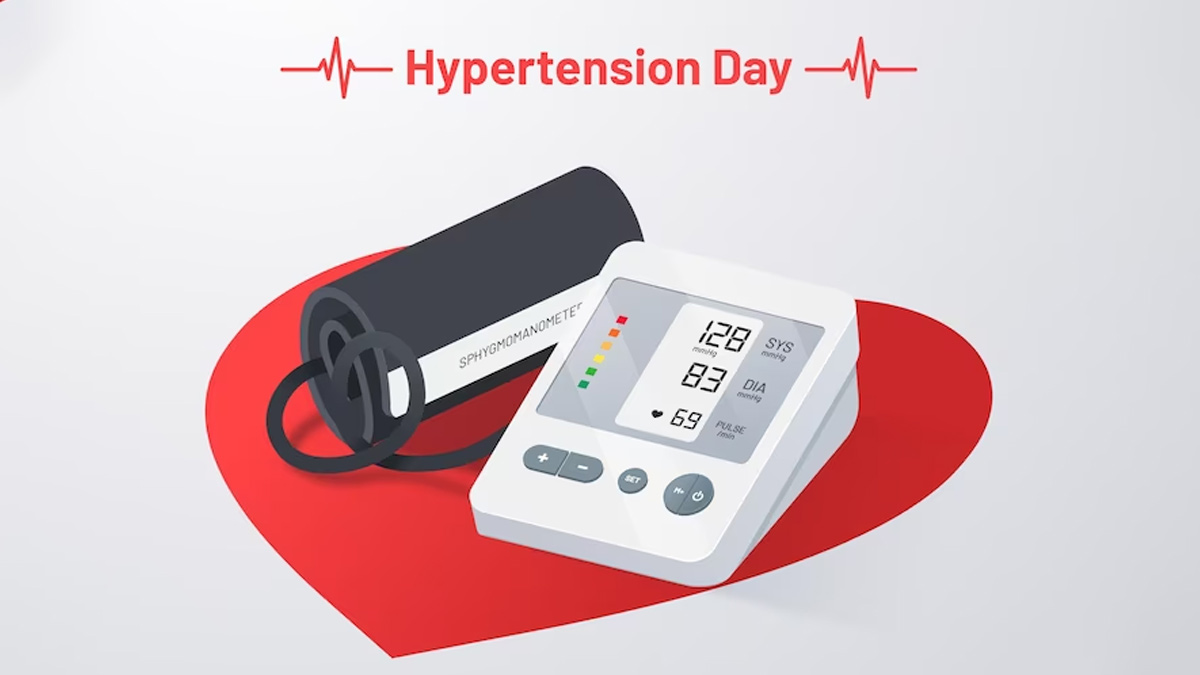
A world fueled by fast-paced living and constant stimulation, a quiet but potent force silently threatens the health of our youngest generation. Like a stealthy predator, it creeps into their lives, often unnoticed until it's too late. This hidden adversary is none other than hypertension in youth, a ticking time bomb nestled within the veins of those who should be carefree and full of boundless energy.
Table of Content:-
Cardiovascular disease (CVD) has long been considered a health concern primarily affecting older adults. However, the alarming rise in pre-hypertension prevalence among youth has raised concerns among doctors worldwide.
Prehypertension, defined as blood pressure levels higher than average but not yet reaching the threshold for hypertension, can serve as an early warning sign for future cardiovascular complications.
Understanding the risk factors associated with pre-hypertension in youth is crucial for implementing effective preventive measures and promoting heart-healthy lifestyles early on.
To know more about the risk factors associated with prehypertension in youth, Only My Health reached to Dr Harpalsinh Dabhi, MBBS, MD (Pulmonology), FCCS, Head & Critical Care Medicine, HCG Hospitals, Bhavnagar and Dr Ankur Bambhania, MBBS, MD Internal Medicine, DrNB (DM) Consultant Critical Care Medicine.
The Nexus of Lifestyle
A sedentary way of life and inadequate dietary practices emerge as pivotal contributors to the onset of pre-hypertension youth. With the advent of technology, children and adolescents devote excessive time to screen-based activities, such as watching television, playing video games, or using smartphones.
Also read: How Can Hypertension Affect Other Organs? Expert Explains
"These sedentary behaviours frequently supplant physical activity, resulting in weight gain, decreased cardiovascular fitness, and augmented jeopardy of pre-hypertension", says Dr Dabhi.
Consuming energy-dense, nutrient-depleted food high in salt, sugar, and unhealthy fats, has become progressively prevalent among young people. This dietary pattern and a declined intake of fruits, vegetables, and whole grains increase the risk of pre-hypertension.

The rise of fast food and highly processed foods along with consumption of alcohol and smoking cigarettes, has facilitated the cultivation of unfavourable habits among the younger generation, contributing to the growing burden of cardiovascular disease.
Obesity and Excess Weight
Obesity and excess weight represent significant risk factors for pre-hypertension among young people. The global obesity epidemic has attained an alarming magnitude, with a substantial increase in overweight and obese children and adults. Excessive weight strains the cardiovascular system, subjecting the heart and blood vessels to elevated blood pressure levels.
According to Dr Bambhania obese people are more prone to developing insulin resistance, metabolic syndrome, and type 2 diabetes, further increasing the chances of cardiovascular ailments. Redressing obesity and cultivating healthy weight management through a synergistic blend of regular physical activity and a well-balanced diet is indispensable for curbing the incidence of pre-hypertension in the youth cohort.
Family History and Genetics
Family history and genetics play a pivotal role in the genesis of pre-hypertension among young people. Those with a familial history of hypertension or cardiovascular disease exhibit an augmented likelihood of experiencing elevated blood pressure levels. Genetic factors can impact blood pressure regulation and responsiveness to environmental triggers, rendering specific individuals more susceptible to prehypertension.
Also read: Preventive Measures For Headaches Due To Hypertension
While genetic predisposition remains unalterable, discerning one's familial history empowers identifying people at heightened risk at an early juncture. Lifestyle changes, such as engaging in regular exercise, adhering to a nourishing diet, and adopting stress management techniques, can eliminate the repercussions of genetic factors and reduce the susceptibility to pre-hypertension among susceptible young individuals.
Psychosocial Factors
Psychosocial factors, including chronic stress, anxiety, and depression, have been correlated with the emergence of pre-hypertension in the youth cohort. The necessities of academic performance, social dynamics, and the progressively competitive nature of contemporary society can contribute to chronic stress among young people.

Elevated stress levels trigger hormonal responses that can raise blood pressure. Moreover, unhealthy coping mechanisms, such as emotional eating or sedentary behaviours, can further compound the risk. Recognising the impact of psychosocial factors on cardiovascular well-being is crucial for implementing effective stress management strategies and promoting mental well-being among youth.
Takeaway
Pre-hypertension in youth is a concerning trend that should not be overlooked. Addressing risk factors associated with pre-hypertension, such as sedentary behaviour, poor diet, obesity, family history, and psychosocial stress, is essential for promoting heart-healthy lifestyles early on. Efforts should focus on encouraging regular physical activity, promoting healthy eating habits, and providing education and support to youth and their families. Addressing these risk factors and instilling positive lifestyle choices can pave the way for a healthier future generation free from the burden of cardiovascular disease.
Also watch this video
How we keep this article up to date:
We work with experts and keep a close eye on the latest in health and wellness. Whenever there is a new research or helpful information, we update our articles with accurate and useful advice.
Current Version